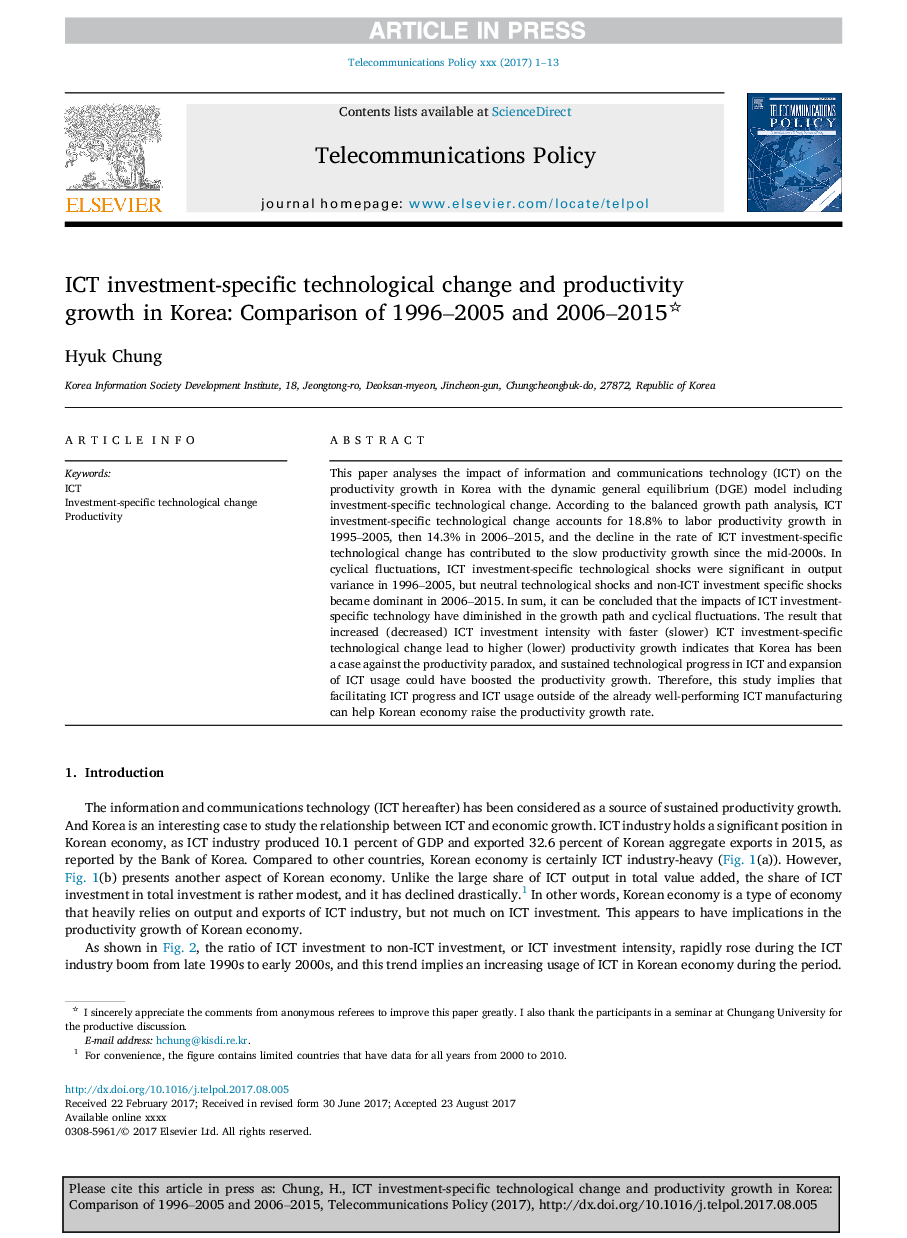| Article ID | Journal | Published Year | Pages | File Type |
|---|---|---|---|---|
| 6950310 | Telecommunications Policy | 2018 | 13 Pages |
Abstract
This paper analyses the impact of information and communications technology (ICT) on the productivity growth in Korea with the dynamic general equilibrium (DGE) model including investment-specific technological change. According to the balanced growth path analysis, ICT investment-specific technological change accounts for 18.8% to labor productivity growth in 1995-2005, then 14.3% in 2006-2015, and the decline in the rate of ICT investment-specific technological change has contributed to the slow productivity growth since the mid-2000s. In cyclical fluctuations, ICT investment-specific technological shocks were significant in output variance in 1996-2005, but neutral technological shocks and non-ICT investment specific shocks became dominant in 2006-2015. In sum, it can be concluded that the impacts of ICT investment-specific technology have diminished in the growth path and cyclical fluctuations. The result that increased (decreased) ICT investment intensity with faster (slower) ICT investment-specific technological change lead to higher (lower) productivity growth indicates that Korea has been a case against the productivity paradox, and sustained technological progress in ICT and expansion of ICT usage could have boosted the productivity growth. Therefore, this study implies that facilitating ICT progress and ICT usage outside of the already well-performing ICT manufacturing can help Korean economy raise the productivity growth rate.
Related Topics
Physical Sciences and Engineering
Computer Science
Information Systems
Authors
Hyuk Chung,
